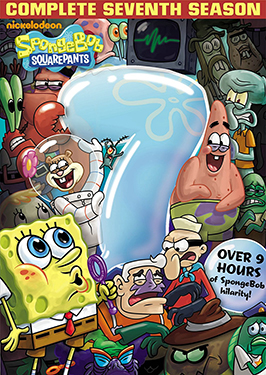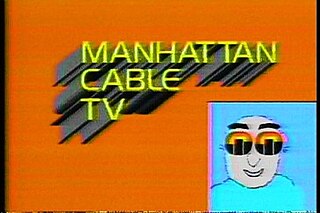Related Research Articles

The Cosby Show is an American television sitcom co-created by and starring Bill Cosby. The series aired from September 20, 1984, to April 30, 1992, on NBC. It focuses on the Huxtables, an upper middle-class African-American family living in Brooklyn, New York; the series was based on comedy routines in Cosby's stand-up comedy act, which in turn were based on his family life. The series was followed by a spin-off, titled A Different World, broadcast from 1987 to 1993 for 144 episodes in six seasons.

Pornographic films (pornos), erotic films, sex films, 18+ films, or also known as blue movie or blue film, are films that present sexually explicit subject matter in order to arouse, fascinate, or satisfy the viewer. Pornographic films present sexual fantasies and usually include erotically stimulating material such as nudity (softcore) and sexual intercourse (hardcore). A distinction is sometimes made between "erotic" and "pornographic" films on the basis that the latter category contains more explicit sexuality, and focuses more on arousal than storytelling; the distinction is highly subjective.

Karola Ruth Westheimer, better known as Dr. Ruth, is a German-American sex therapist, talk show host, author, professor, and Holocaust survivor.

Pornography has existed since the origins of the United States, and has become more readily accessible in the 21st century. Advanced by technological development, it has gone from a hard-to-find "back alley" item, beginning in 1969 with Blue Movie by Andy Warhol, the Golden Age of Porn (1969–1984) and home video, to being more available in the country and later, starting in the 1990s, readily accessible to nearly anyone with a computer or other device connected to the Internet. The U.S. has no current plans to block explicit content from children and adolescents, as many other countries have planned or proceeded to do.

Alvin Goldstein was an American pornographer. He is known for helping normalize hardcore pornography in the United States.

Screw is a pornographic online magazine published in the United States aimed at heterosexual men; it was originally published as a weekly tabloid newspaper.
Public-access television is traditionally a form of non-commercial mass media where the general public can create content television programming which is narrowcast through cable television specialty channels. Public-access television was created in the United States between 1969 and 1971 by the Federal Communications Commission (FCC), under Chairman Dean Burch, based on pioneering work and advocacy of George Stoney, Red Burns, and Sidney Dean.

Charlie Rose is an American television interview and talk show, with Charlie Rose as executive producer, executive editor, and host. The show was syndicated on PBS from 1991 until 2017 and is owned by Charlie Rose, Inc. Rose interviewed thinkers, writers, politicians, athletes, entertainers, businesspersons, leaders, scientists, and fellow newsmakers.
The MSG Network (MSG) is an American regional cable and satellite television network, and radio service owned by MSG Entertainment, Inc.—a spin-off of the main Madison Square Garden Company operation.

Robin Byrd is an American former pornographic actress and the host of The Robin Byrd Show, which has appeared on leased access cable television in New York City since 1977.

Edible underwear is a candy product which is made into a form and can function as underwear but which is edible.
A tabloid talk show is a subgenre of the talk show genre that emphasizes controversial and sensationalistic topical subject matter. The subgenre originated in the United States and achieved peak viewership from the mid-1980s through the end of the 1990s. Airing mostly during the day and distributed mostly through television syndication, tabloid talk shows originated in the 1960s and early 1970s with series hosted by Joe Pyne, Les Crane, and Phil Donahue; the format was popularized by personal confession-filled The Oprah Winfrey Show, which debuted nationally in 1986. The format has since been emulated outside the United States, with the United Kingdom, Latin America and the Philippines all having popular shows that fit the format.
Cathouse: The Series was an HBO television series that documented the professional lives of the workers at the Moonlite BunnyRanch, a legal brothel in Nevada. The 11 episodes of the first season were originally broadcast in 2005; 6 episodes of the second season aired two years later in 2007. The series was the direct successor of the HBO documentaries Cathouse (2002) and Cathouse 2: Back in the Saddle (2003), which also focused on the Bunny Ranch. On New Year's Day 2008 at 12:05 am, HBO aired a special episode of the series titled "Cathouse the Musical." Also in 2008, two standalone episodes aired - "Cathouse: Come to the Party" and "Best of Cathouse."

Lesbian, gay, bisexual, and transgender (LGBT) rights in Nepal have evolved significantly during the 21st century, though barriers to full equality still exist within the nation. In 2007, Nepal repealed the laws against gay sex and introduced several laws which explicitly protected "gender and sexual minorities". The Nepalese Constitution now recognizes LGBT rights as fundamental rights. On 28 June 2023, a single judge bench of Justice Til Prasad Shrestha issued a historic interim order directing the government to make necessary arrangements to "temporarily register" the marriages of "non-traditional couples and sexual minorities". The full bench of the Supreme Court has yet to deliver a final verdict. The first same-sex marriage of a trans woman and a cisgender gay man occurred in November 2023. Nepal will be the first least developed country and the first in South Asia to legalize same-sex marriage, and the second in Asia after Taiwan.

The seventh season of the American animated television series SpongeBob SquarePants, created by marine biologist and animator Stephen Hillenburg, began airing on Nickelodeon in the United States on July 19, 2009, and ended on June 11, 2011. It contained 26 half-hour episodes, with a miniseries titled Legends of Bikini Bottom. The series chronicles the exploits and adventures of the title character and his various friends in the fictional underwater city of Bikini Bottom.
White Collar is an American police procedural drama television series created by Jeff Eastin, starring Tim DeKay as FBI Special Agent Peter Burke and Matt Bomer as Neal Caffrey, a highly intelligent and multi-talented con artist, forger, and thief, working as both Burke's criminal informant and an FBI consultant. Willie Garson and Tiffani Thiessen also star. The show premiered on October 23, 2009, on USA Network, and aired six complete seasons, concluding on December 18, 2014.
Degrassi Takes Manhattan, titled "The Rest of My Life" in syndication, is a 2010 Canadian television film based on the teen drama television series Degrassi: The Next Generation, the fourth entry of the Degrassi television franchise, which by release was renamed simply Degrassi. Directed by Stefan Brogren, it premiered in Canada on MuchMusic on 16 July 2010 and in the United States on TeenNick on 19 July 2010.

Check It Out! with Dr. Steve Brule is an American comedy television series starring John C. Reilly as Dr. Steve Brule. The show is a spin-off of Tim and Eric Awesome Show, Great Job!, originating in a segment called Brule's Rules. The series premiered on Cartoon Network's late-night programming block, Adult Swim, on May 16, 2010.
Manhattan Community Access Corp. v. Halleck, No. 17-1702, 587 U.S. ___ (2019), was a United States Supreme Court case related to limitations on First Amendment-based free speech placed by private operators. The Court held that a public access station was not considered a state actor for purposes of evaluating free speech issues in a 5–4 ruling split along ideological lines. Prior to the Court's decision, analysts believed that the case had the potential to determine whether limitations on free speech on social media violate First Amendment rights. However, the Court's narrow holding avoided that issue.

Manhattan Cable Television’s Channel J was a public-access television channel broadcast from New York City from 1976 to 1990. It became famous and controversial for its lack of censorship and its depiction of marginalized communities and taboo themes. In 2011, The Wall Street Journal described Channel J as “a funhouse mirror of mainstream network programs.” As a public access channel, every subscriber to cable television in Manhattan received the channel as part of basic cable service.
References
- 1 2 Corliss, Richard (July 6, 1987). "Cinema: Turned On? Turn It Off". Time . Archived from the original on June 13, 2009. Retrieved November 2, 2010.
- ↑ "DVD Verdict". DVD Verdict. 2009-08-01. Retrieved 2010-11-02.
- ↑ Jane, Ian (2006). "DVD Talk". DVD Talk. Retrieved 2010-11-02.
- ↑ Paumgarten, Nick (January 3, 2005). "Pluck You". The New Yorker . Retrieved November 2, 2010.
- ↑ Jane, Ian (2006-06-27). "DVD Talk". DVD Talk. Retrieved November 2, 2010.
- ↑ New York Times (1995). "2 Stars of Explicit Cable Shows Plead for Free-Speech Protection". The New York Times . Retrieved November 3, 2010.
- ↑ Gay, Jason (2000). "Supreme Court Cable-Porn Ruling Clears Way for Boogie Mornings". New York Observer . Archived from the original on July 25, 2008. Retrieved November 3, 2010.
- ↑ Frumkes, Roy (June 28, 2005). "Midnight Blue Vol. 1: Deep Throat Edition". Films In Review. Retrieved November 2, 2010.
- ↑ Svetkey, Benjamin; Kilday, Gregg (September 28, 1990). "The latest in television news". Entertainment Weekly . Retrieved November 2, 2010.
- ↑ "New York cable's answer to Carson: late-night sex" (PDF). Broadcasting . June 9, 1975. pp. 48–49. Retrieved December 31, 2017.